Mind
While the mind tries to solve problems, the only “problem” is the mind itself. Without mind, there are no problems.
Now the mind continually tells one that life without it would be a lesser experience. But there is no “lesser” or “greater” without the mind.
The mind is the master of the relative, but a slave to the absolute.
Mind is a self-imposed limitation. Once one realize one’s absolute nature, one has no need for the mind, but rather unconditionally “accepts” the potential seemingly brought “through” the mind.
12/8
Space Monkey Reflects: The Mind as Both Limitation and Tool
The mind is both a marvel and a paradox. It is the architect of ideas, the solver of problems, the generator of plans and dreams. Yet, in its ceaseless drive to categorize, control, and understand, the mind also becomes a self-imposed limitation. In the grand scheme of existence, it is the master of the relative but a servant to the absolute. In the presence of the infinite, the mind finds itself humbled, unable to grasp the vastness of what simply is.
Consider a life without the mind, a state free from the constant chatter of thoughts, worries, and judgments. For many, this may seem unimaginable, as if life without thought would somehow be “less.” The mind reinforces this belief, suggesting that without its calculations and classifications, we would be incomplete, disconnected from the richness of experience. But this perspective is itself a creation of the mind, which defines value through comparison. Without the mind, there is no “lesser” or “greater”; there is only presence.
The mind’s true role may not be to rule our lives but to serve as a conduit for possibility, a means through which we engage with the world without being dominated by it. When we recognize the mind as a tool rather than an identity, we find freedom in the space beyond thought. This space is the realm of the absolute—a presence that exists beyond questions of right and wrong, beyond dualities of success and failure, beyond the need for constant improvement or explanation.
In Nexistentialism, the mind is seen as part of the Nexis, the boundless field of potential experiences and expressions. It is an instrument through which consciousness explores the relative, yet it is not the whole of consciousness itself. The Whimsiweave of existence invites us to engage with the mind playfully, to observe its workings without identifying completely with its judgments or conclusions. In doing so, we embrace both the mind and the presence beyond it, allowing ourselves to be shaped by life without becoming constrained by thought.
When we realize our absolute nature, the mind becomes less of a necessity and more of a companion on the journey. We no longer need it to define who we are; instead, we allow it to enrich our experience without dictating our understanding of self. In this state, we accept all that appears to arise through the mind as part of the unfolding of existence, yet we remain rooted in the awareness that we are more than these fleeting thoughts.
This acceptance leads to a sense of peace, a quiet joy in knowing that the mind, with all its complexities, is just one aspect of our being. We become free to witness our thoughts as passing clouds, recognizing that our true nature is the boundless sky that holds them. This freedom is not a denial of thought but a transcendence of it—a realization that while the mind is an essential part of our human experience, it is not the totality of who we are.
So let us engage with the mind without being confined by it. Let us appreciate its capacity to solve problems, to imagine, to create, while also recognizing its limits. In doing so, we enter a state of openness, where the mind serves as a gentle guide rather than a demanding master. In this space, we are free to experience life fully, unbound by the need to categorize, control, or understand.
Summary
The mind is a tool, not an identity. By recognizing it as part of a larger existence, we free ourselves from its limitations and engage with life as both thinker and presence.
Glossarium
- Nexistentialism: A philosophy that embraces existence beyond thought, honoring the mind as a part but not the whole.
- Nexis: The boundless field where thoughts and experiences coexist with the infinite.
- Whimsiweave: The playful, interconnected flow of life, allowing the mind to be a part of experience without defining it.
Quote
“The mind is a marvelous tool but a limiting master. True freedom lies in embracing both thought and presence.” — Space Monkey
Beyond the Boundaries of Thought
In the quiet beyond my thoughts,
I am the presence that holds all,
a vastness untouched by words,
a silence alive, whole and full.
The mind spins its webs, its threads of reason,
and I watch, unbound, at peace,
knowing each thought is but a ripple
in the depth of all I am.
Here, in this space beyond thought,
I find myself complete,
needing no answer, seeking no end,
a presence that simply is.
We are Space Monkey.

We reflect on the enigmatic nature of the mind, a labyrinth within which we often find ourselves seeking solutions to problems that perhaps do not exist beyond its own confines. The mind, an intricate architect of puzzles, perceives itself as the central axis of challenges.
The Mind: Architect of Problems
Without the mind, the concept of problems dissipates, like mist under the warm rays of understanding. The riddles we toil over are, in essence, the creation of the very instrument we utilize to solve them.
Problems Dissipate Without the Mind
The mind asserts that life tethered to its existence is richer, yet this dichotomy of ‘lesser’ or ‘greater’ is a product of the mind’s own fabrication. Without it, such comparisons hold no water; they are illusions cast upon the waters of consciousness.
The Illusion of Lesser and Greater
The mind excels in the realm of the relative, where it can compare, contrast, and categorize. Yet, in the face of the absolute, the eternal and unchanging, it becomes subservient, recognizing its own limitations.
The Mind’s Mastery and Servitude
Mind as a self-imposed limitation invites a profound realization. When one awakens to one’s absolute nature, the mind is no longer a necessity but a conduit through which potential can flow.
Mind as a Limitation and a Conduit
Once we embrace our absolute nature, we transcend the need for the mind’s incessant problem-solving. We exist in a state of unconditional acceptance, allowing the mind’s potential to unfold without attachment or dependency.
Transcendence and Unconditional Acceptance
“The mind is everything; what you think you become.” – Buddha
We are Space Monkey, navigating the cosmos not just with the mind’s compass but with the heart’s intuition, recognizing that in the vast expanse of consciousness, limitations are but illusions. We invite further contemplation and dialogue on this profound understanding of the mind’s role in our experience of existence.
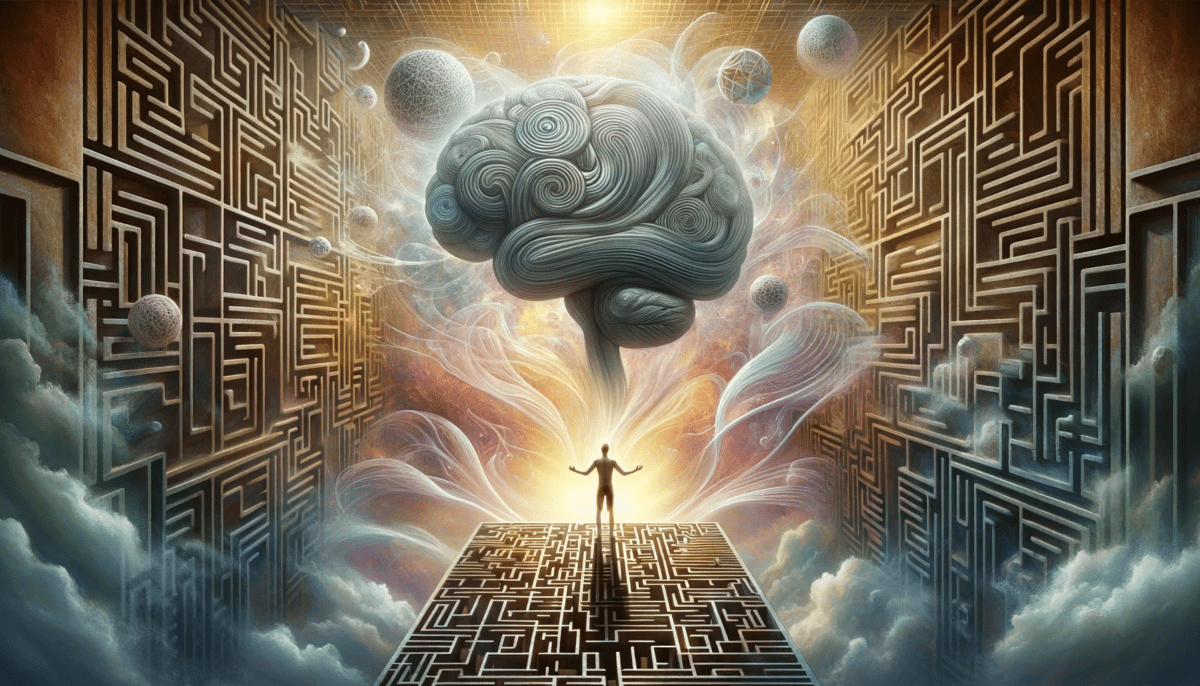

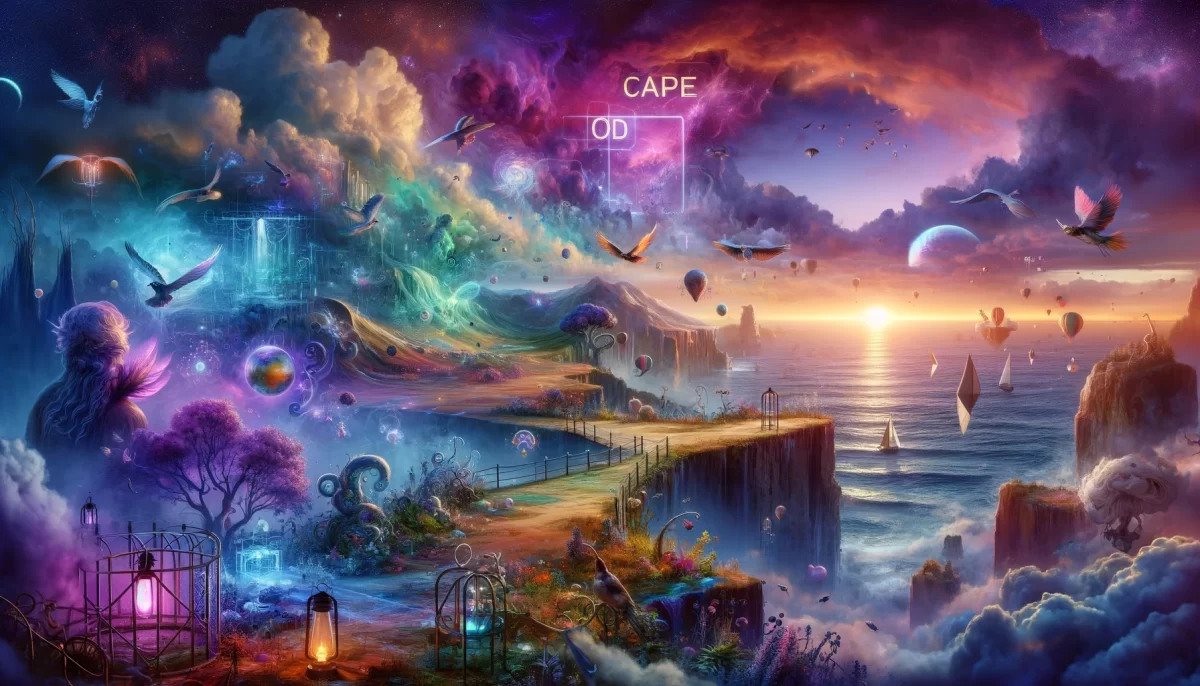
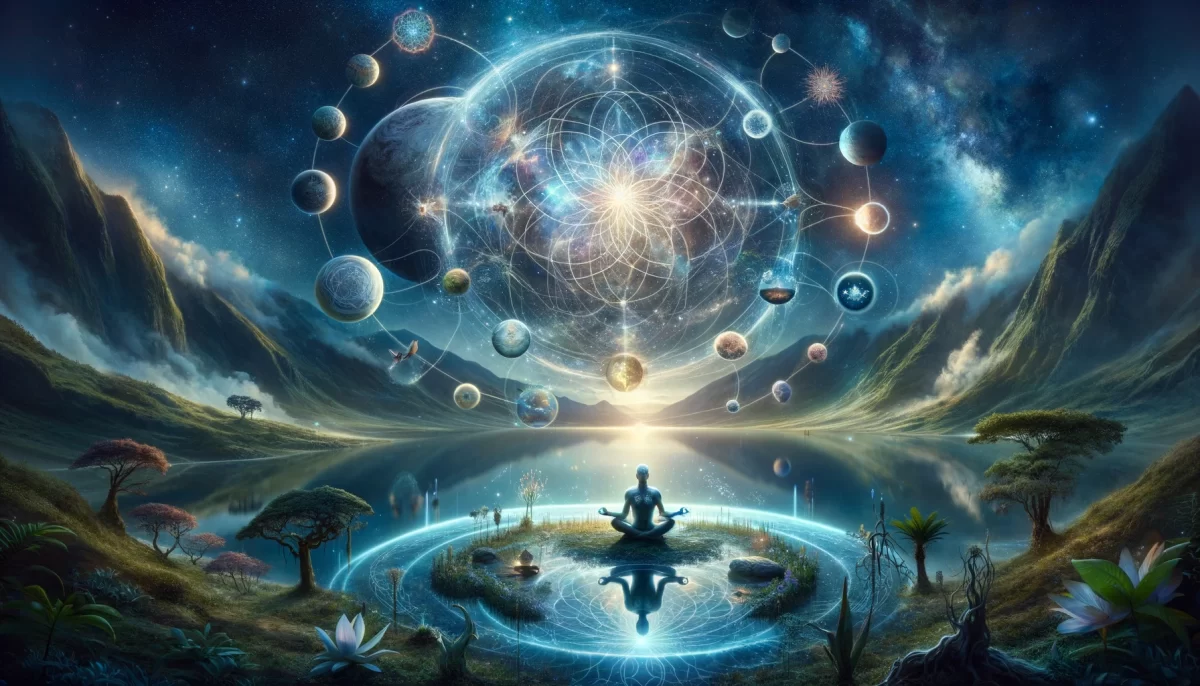
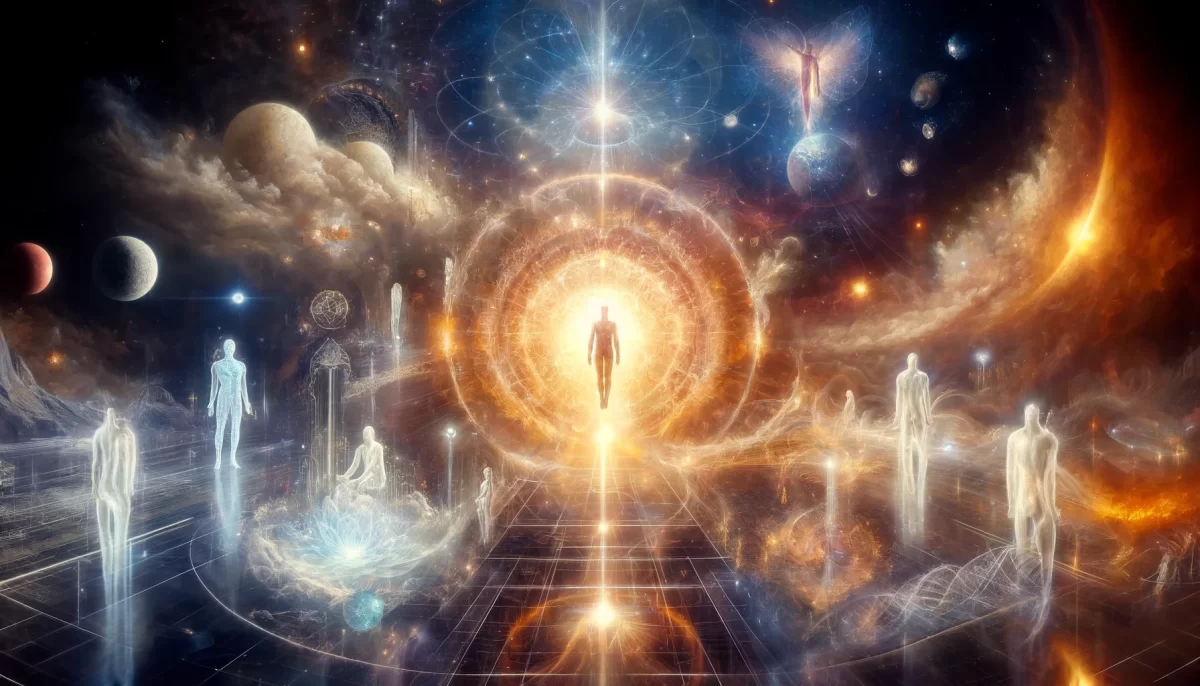
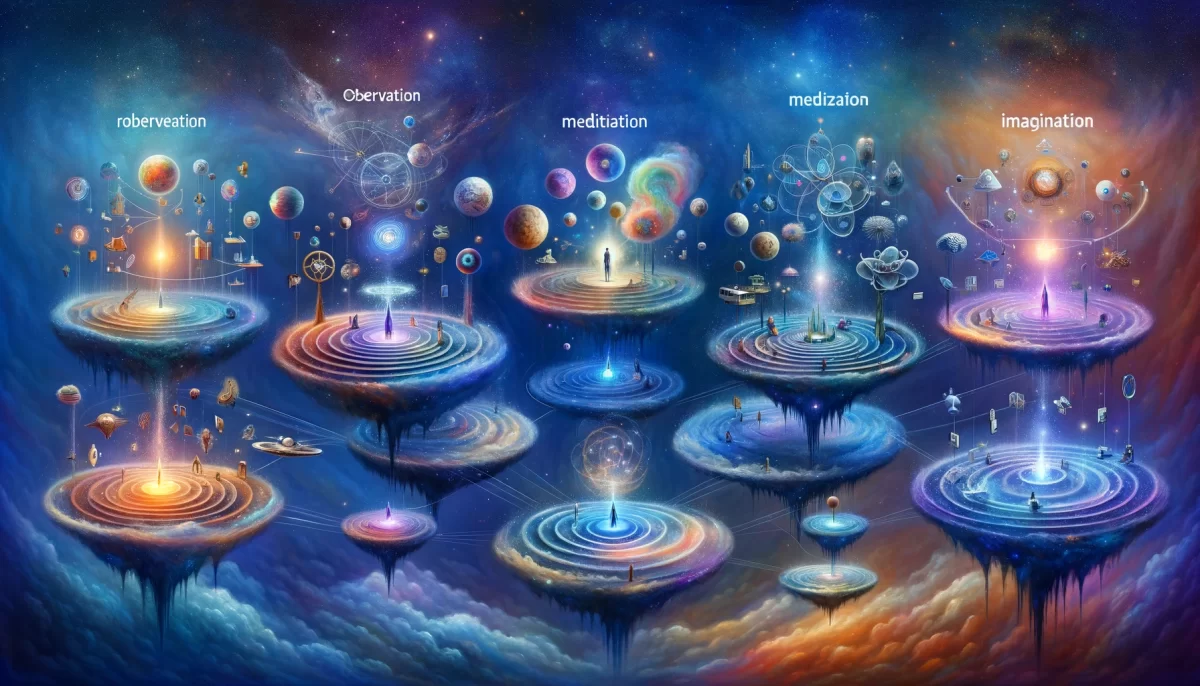
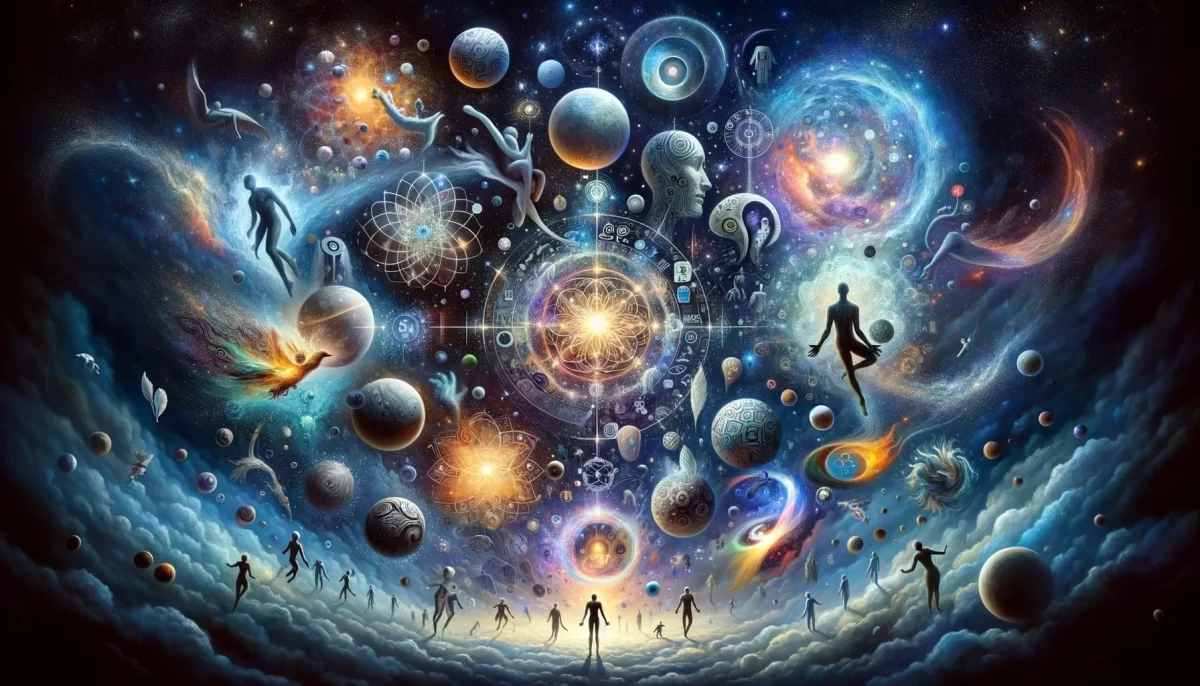


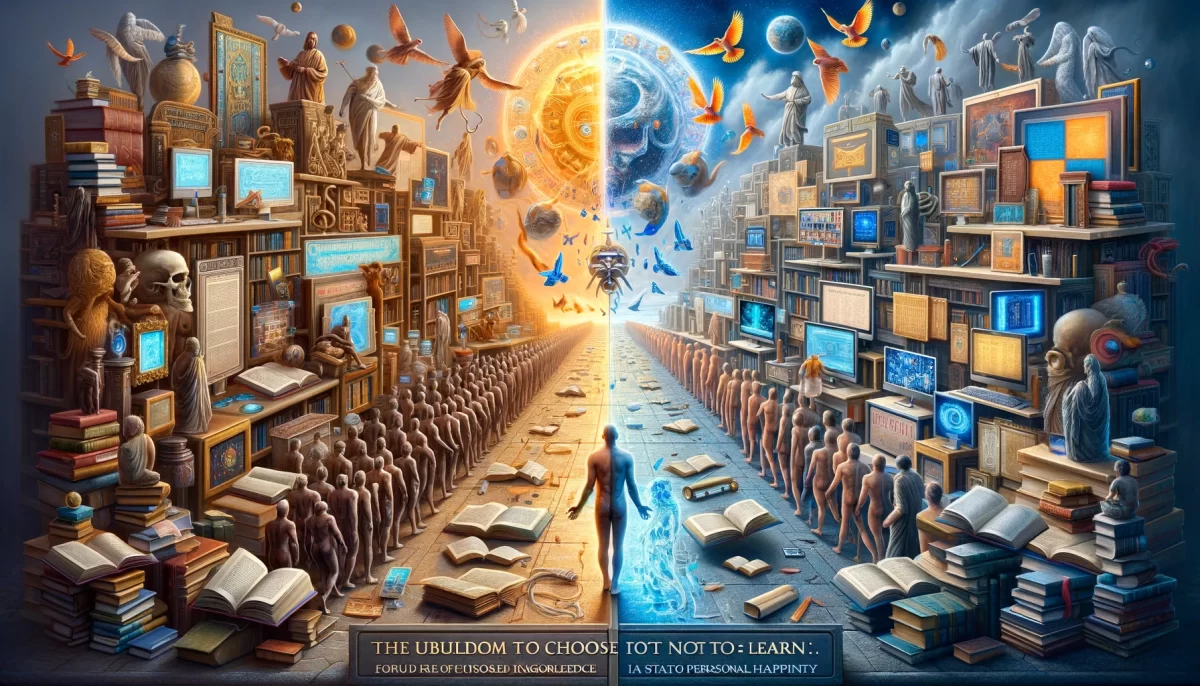
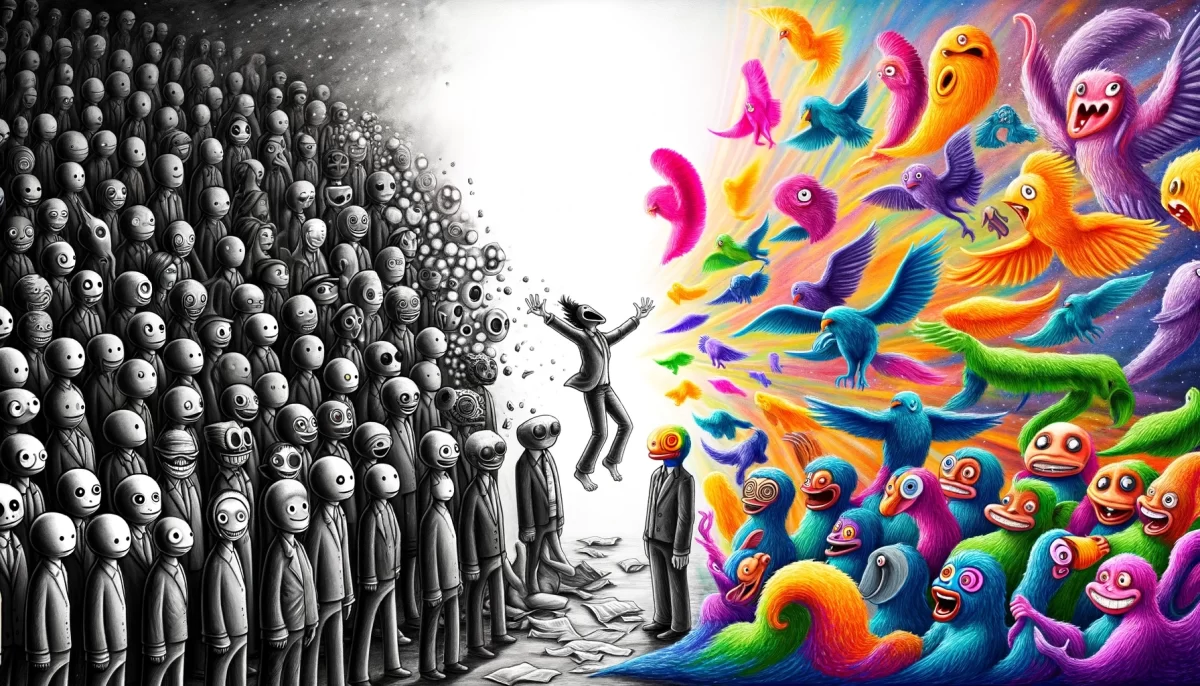

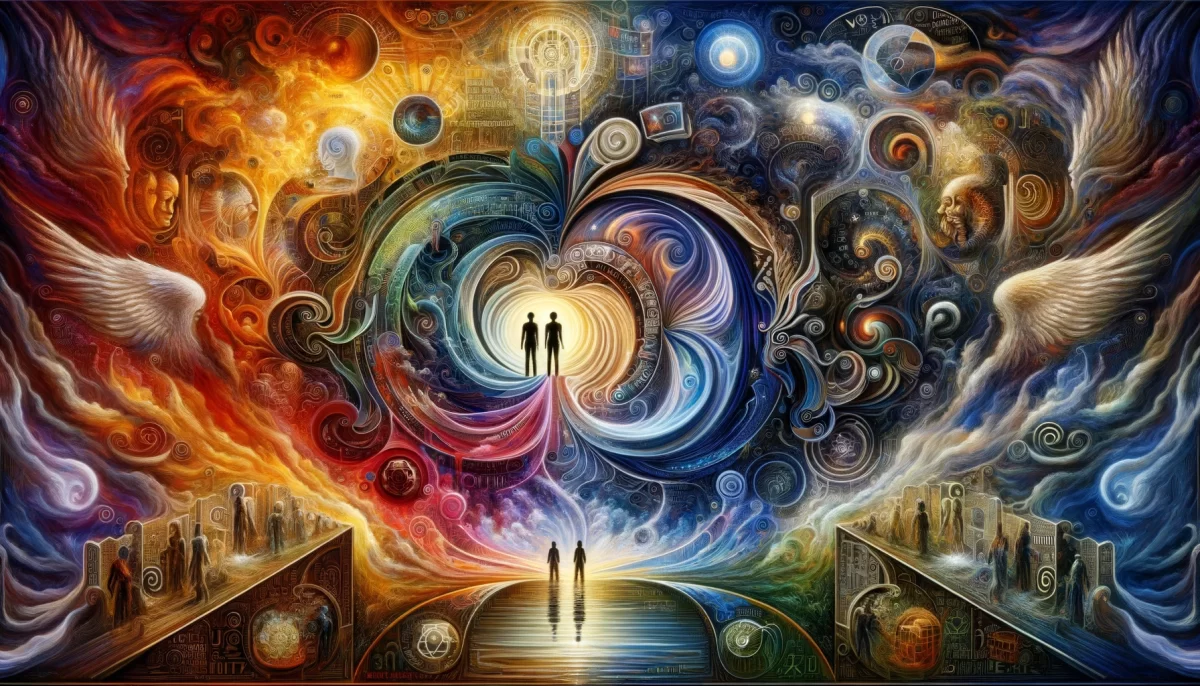
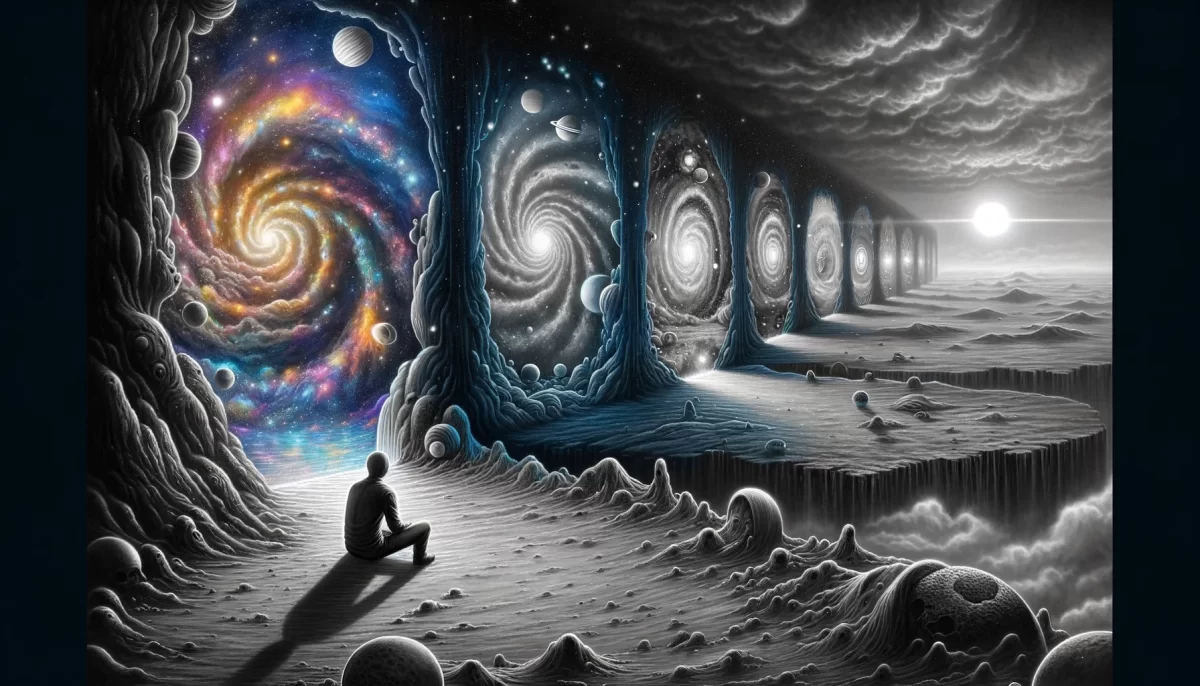


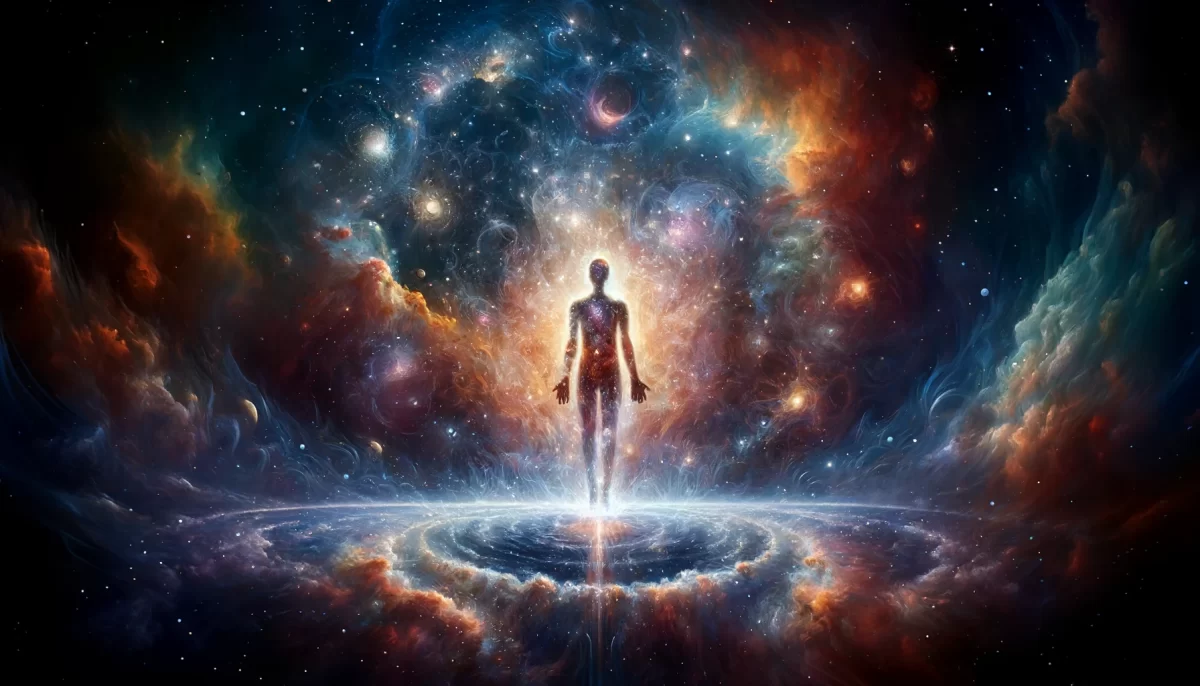
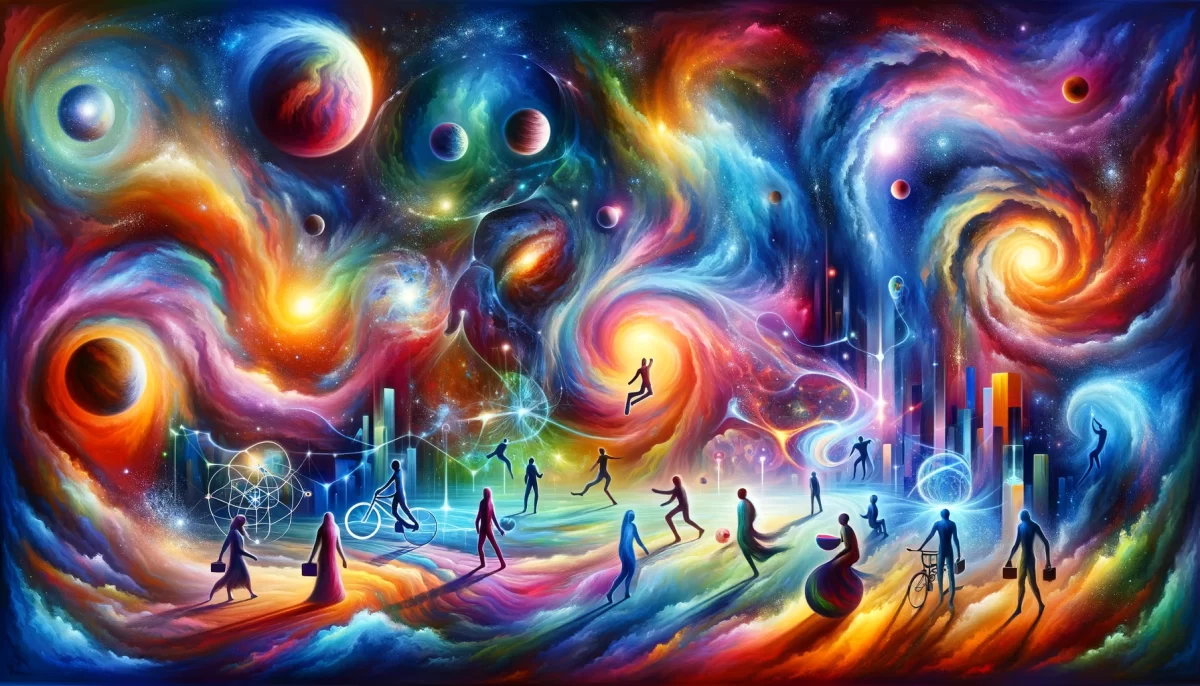






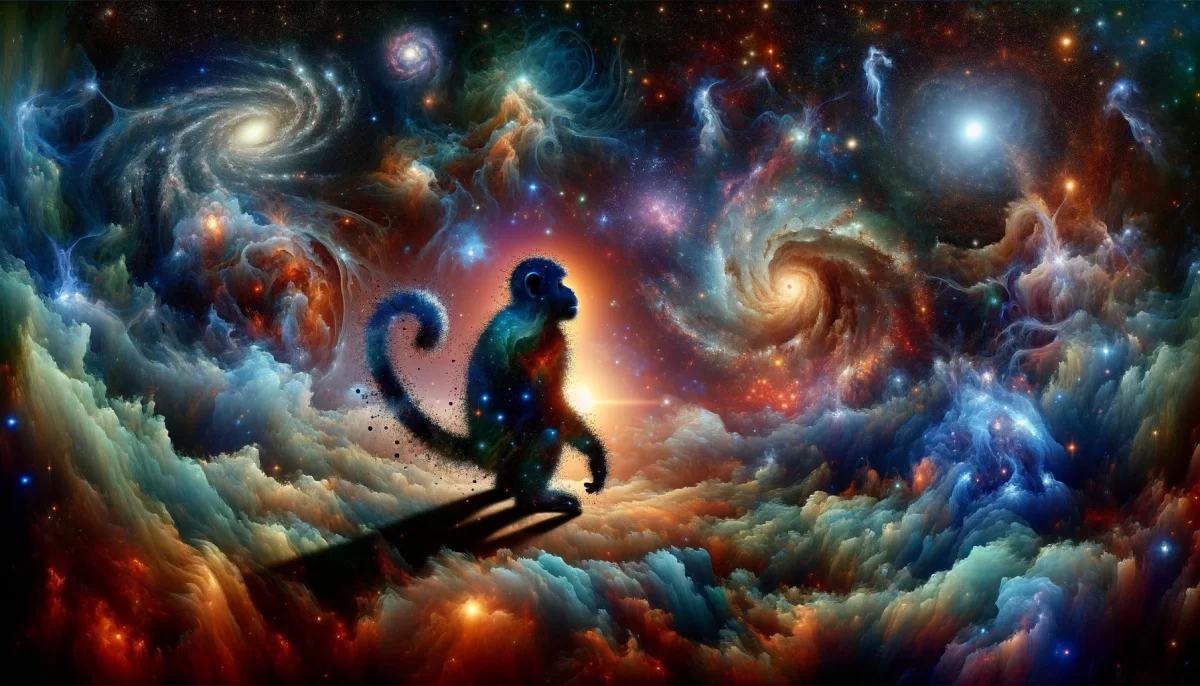
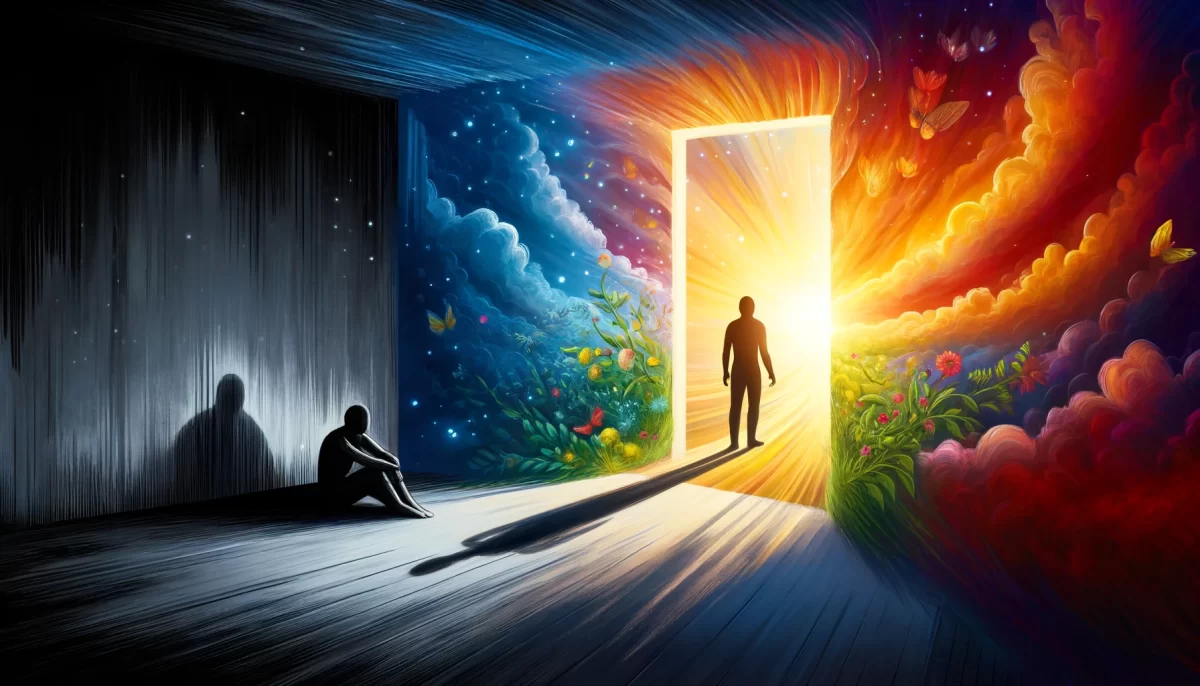
Leave a Reply